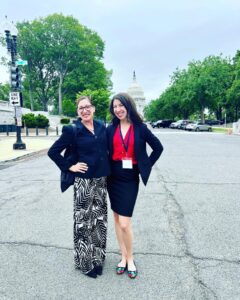I was never really interested in politics. While my college friends were raving about their poli sci classes, I buried my nose in biochemistry textbooks. I thought politics and medicine didn’t mix, and I preferred it that way.

Dr. Shapiro
But then I became the first rheumatologist at a federally qualified health center. On my first day, the referral list to see me included 1,245 patients.1 Obtaining medications to care for these patients was a daily struggle, as were my complaints about our broken system.2
I watched as patients deteriorated before my eyes while waiting for biologics. And then one day, I got an email soliciting applications for positions on ACR committees. I saw this as a chance to take action. The potential professional benefit to me as an academic rheumatologist shooting for promotion also motivated me to apply. A few months later, I became the newest member of the Insurance Subcommittee (ISC) of the Committee on Rheumatologic Care. I didn’t know much about insurance. But I was willing to learn.
ACR Insurance Subcommittee
The ISC meets once a month to advocate for coverage and payment policies that benefit rheumatology patients and providers alike. ACR members may submit complaints about unfair insurance practices via the ACR website. Then, the ISC uses the power of the ACR to write letters to and schedule meetings with payers to effect change.
For example, the ISC learned that multiple payers are denying apremilast in combination with biologics for patients with psoriatic arthritis and residual skin lesions. As a team, we drafted a letter to the payer in question to advocate for a policy change. Note: An editable version of the letter will soon be available online to all ACR members should they encounter similar trouble in their practices.3
In many ways, ISC work can feel like a game of Whac-A-Mole—when we knock one nasty policy down, another springs up in its wake. But it sure feels good to do something more than just complain.
Advocacy Leadership Conference

At the Advocacy Leadership Conference, Dr. Shapiro met up with a former mentor, Rebecca Manno, MD, MHS (left).
In May 2022, my fellow ISC members and I, as well as members of several other ACR committees, were invited to meet in Washington, D.C., at the Advocacy Leadership Conference (ALC). ALC includes committee meetings, but these aren’t the main event. The real draw is advocacy training, followed by the opportunity to meet with one’s members of Congress on Capitol Hill.
